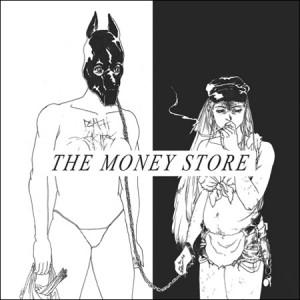 I don’t go in for trend pieces generally, and I especially dislike trend piece about how the internet is changing people, society, our brains, etc., because trend pieces by nature do not try to capture the stunning diversity of ways people live in this world. However, I’ve noticed something about the internet that has shifted the way I consume media, something I feel like many people will identify with — though many others may not.
I don’t go in for trend pieces generally, and I especially dislike trend piece about how the internet is changing people, society, our brains, etc., because trend pieces by nature do not try to capture the stunning diversity of ways people live in this world. However, I’ve noticed something about the internet that has shifted the way I consume media, something I feel like many people will identify with — though many others may not.
Spending much of my day on the internet, and on Twitter especially, has taught me to be an excellent curator of my own consumption. The decision of whether or not to click on a link and read the book review or news article or listen to an mp3 or watch a video often boils down to: do I already like (or like hating) this sort of thing? If the answer is yes, I click the link. If the answer is no, I don’t. And most of what I consume — music, essay, journalism, and fiction — fall into that “yes” category. I am savvy enough that I can even identify bad versions of the kinds of things I like, most of the time. My cultural consumption has become a well-oiled machine, generating mostly superb product with only the occasionally dud.
Only clicking on things I already like, only consuming certain kinds of things, means I very rarely consume things I dislike (or don’t enjoy disliking). This is good, because I am not as often exposed to narratives I hate (for example, misogynistic storytelling that makes me feel angry and sad) and because I rarely spend time with something that gives me nothing in return. This is bad, because I am rarely surprised by anything. A surprise-less world becomes a monotonous bore: the boredom of constant pleasantness.
Sometimes I am forced to or tricked into venturing outside my bubble of curated media. Sometimes it’s scary out there. I watched my first episode of Whitney recently, which I’d been meaning to watch because it had a person-of-color coming-out story, but I resisted watching for a while because I heard from friends it wasn’t even good hate-watching. They were right. The half hour was dull; the coming-out story was handled perfectly fine but so incredibly uninterestingly I just wanted to nod off.
More often, though, I get a treat. I recently read a short story collection — I Am an Executioner: Love Stories by Rajesh Parameswaran — in order to review it. I rarely read short stories and I never would’ve picked it up on my own, and thus missed out not only on an enjoyable reading experience, but a visceral one. I had no idea what I was going to read before I read it, and the first story, told from the perspective of a Bengal tiger fleeing from a zoo, moved me and shook me. It punched me in the stomach the way only fiction that is both good and surprising can do. I had a similar experience with the latest album from the band Death Grips, “The Money Store.” I hadn’t listened to Death Grips before, because I thought I wouldn’t like it. I’d never heard a Death Grips song — why was I so sure I wouldn’t like it? Luckily, I started playing the album on a whim and, again, got punched in the stomach. I’ve been listening to it basically nonstop for a week and a half, and I haven’t yet tired of it.
I don’t mind my curated bubble most of the time; it’s a good place to live. It keeps the bugs out. But my suggestion for everyone is to build that bubble with as much detail, precision, and care as you can, and then take the time to knock its walls down.
This post may contain affiliate links.








